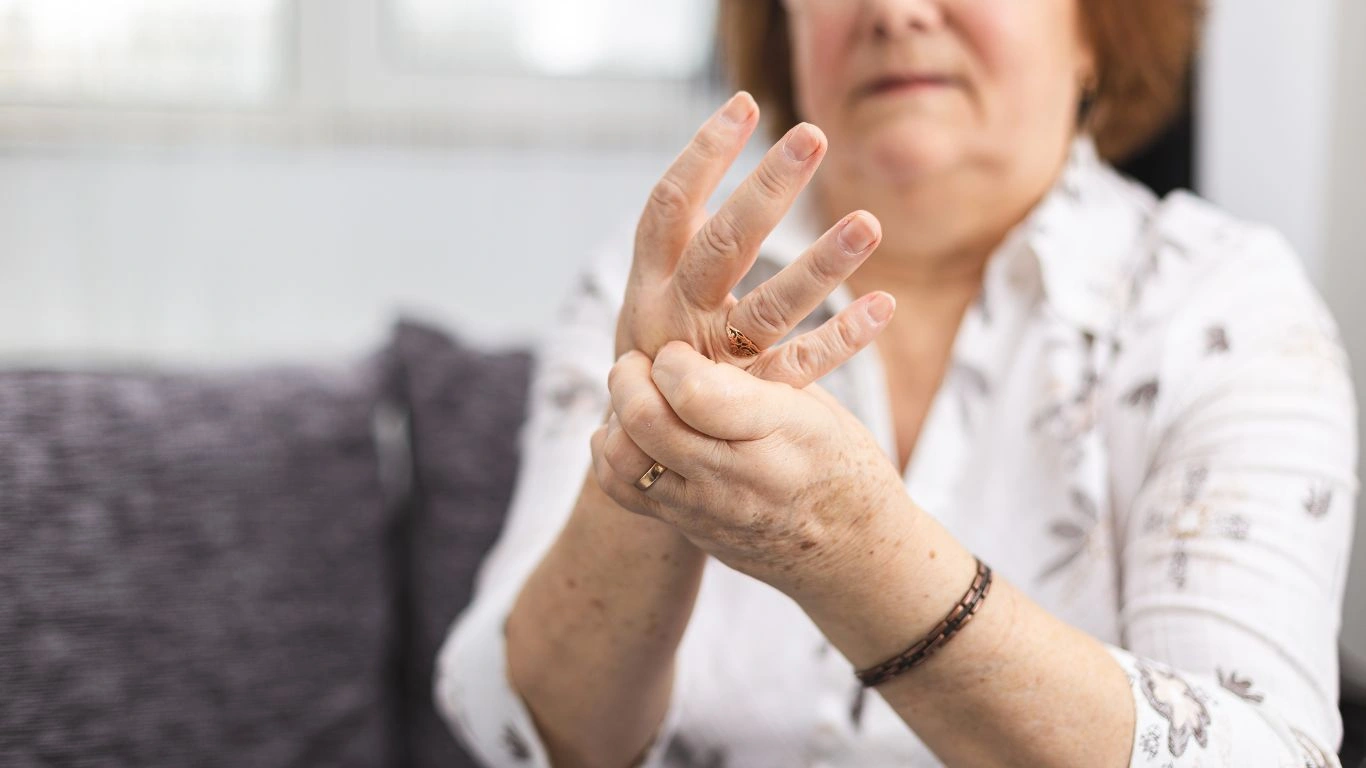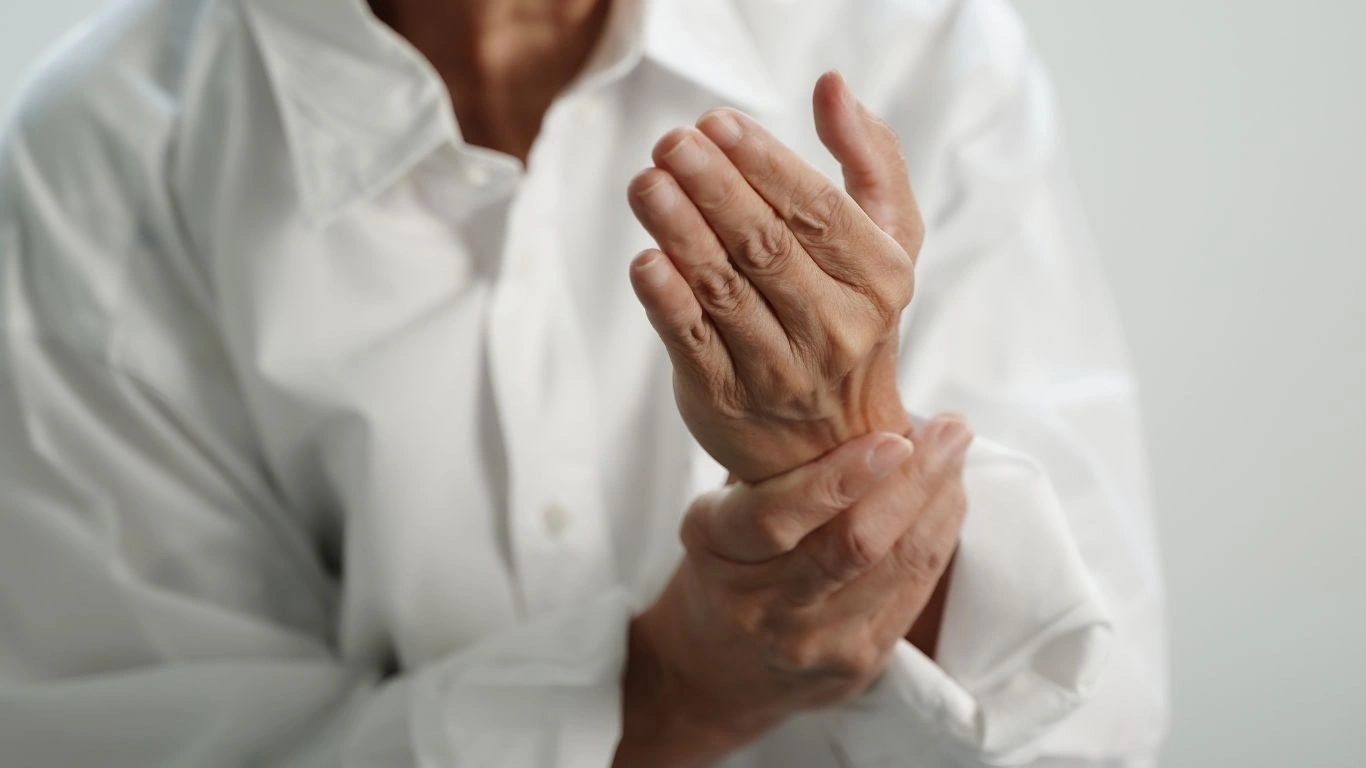Rheumatoid Arthritis and Social Isolation: Overcoming Emotional Challenges
Rheumatoid arthritis (RA) is a chronic autoimmune condition that affects millions of people worldwide, often causing pain, swelling, and joint damage. But one aspect of rheumatoid arthritis that often gets overlooked is the emotional and social toll it takes on individuals. If you’ve ever struggled with social isolation due to RA, you’re not alone. As someone with years of experience as a Rheumatology Nurse Practitioner, I’ve seen firsthand how social isolation and the limitations imposed by RA can impact a person’s mental and emotional well-being. Let’s dive into why navigating social isolation in rheumatoid arthritis is such a challenge and how we can start to address it.
The Hidden Struggles of Rheumatoid Arthritis: More Than Just Physical Pain
Rheumatoid arthritis is widely recognized for its physical symptoms, but its emotional and social effects can be just as debilitating. Most people think of RA as something that affects the joints, but when you’re dealing with chronic pain, fatigue, and limited mobility, the effects can extend far beyond just physical discomfort. Social isolation is a significant challenge for many people with RA, and it’s something that needs to be discussed more openly.
When living with RA, it’s easy to withdraw from social activities, even from those you once enjoyed. The joint pain and swelling can make it difficult to participate in group outings, family gatherings, or even casual meetups with friends. I’ve heard many patients express feelings of embarrassment or frustration when they can’t keep up with others or when their friends and family don’t fully understand the limitations they face. This often leads to feelings of isolation and loneliness, which only exacerbate the condition.

How RA Affects Social Interactions and Relationships
The physical limitations caused by RA don’t just affect the individual; they impact relationships too. For someone with rheumatoid arthritis, even simple tasks like cooking, cleaning, or holding a conversation for an extended period can feel like a major challenge. I’ve seen patients stop going out to dinner or participating in group activities because they worry they’ll get tired, or their joints will flare up. The fear of having to cancel plans last minute or not being able to keep up with friends and family is real and can cause a lot of anxiety.
Furthermore, RA is an invisible illness, meaning that others may not fully understand what the person is going through. It’s frustrating when someone says, “You don’t look sick” or suggests that you’re being overly cautious. This lack of understanding can lead to even greater social isolation. I’ve watched patients push themselves too hard, trying to prove they’re “fine,” only to suffer more pain later. It’s a cycle that’s hard to break, and it’s one that can strain friendships and even family bonds.
Breaking the Cycle: Tips for Managing Social Isolation with Rheumatoid Arthritis
While social isolation can feel overwhelming when living with rheumatoid arthritis, there are strategies that can help you navigate through it. I’ve found that taking a proactive approach to your social life and mental health can make a world of difference. Let’s explore some practical tips that might help if you’re facing this challenge.
1. Open Up to Your Loved Ones
One of the most important steps in combating social isolation is communication. I encourage my patients to open up to their loved ones about how RA affects them on a daily basis. Explaining the struggles you face can help others understand what you’re going through and allow them to be more supportive. Sometimes, people don’t realize the limitations that RA places on your life unless you share it with them. This doesn’t mean you need to go into every detail, but letting others know how they can be there for you can lead to more meaningful connections and less isolation.
2. Find RA-Friendly Social Activities
If you’re finding it hard to keep up with your usual social routines, try finding activities that are more RA-friendly. Low-impact activities like walking, light stretching, or even joining online support groups can provide a great way to stay connected. You don’t have to participate in every activity you used to; sometimes, small changes can make a big difference in maintaining social connections. I’ve seen patients who start virtual book clubs or hobby groups that meet online. These are wonderful ways to interact without the physical strain of in-person gatherings.

3. Prioritize Self-Care and Mental Health
Living with a chronic illness can take a mental toll, and it’s essential to prioritize your mental health as part of your overall well-being. If social isolation is getting to you, don’t hesitate to seek support. Whether it’s speaking with a therapist, joining a support group, or simply practicing mindfulness techniques, taking care of your mental health is just as important as managing your physical symptoms. As a nurse practitioner, I always emphasize the importance of mental well-being in managing RA because when you feel emotionally supported, it’s easier to stay connected and engaged with those around you.
4. Explore Adaptive Technology
In today’s digital age, technology can be a powerful tool for combating social isolation. Adaptive devices, online platforms, and virtual meetups allow people with RA to stay socially connected without physical limitations. Video calling services like Zoom or Skype can allow you to catch up with friends and family from the comfort of your own home. Additionally, there are many social networks specifically designed for people with chronic conditions like RA. These platforms can connect you with others who truly understand what you’re going through.

Managing the Emotional Impact of Rheumatoid Arthritis: A Personal Journey
Living with rheumatoid arthritis goes far beyond managing physical pain. Over the years, I’ve had the privilege of working closely with patients who’ve shared their emotional struggles with me. It’s important to remember that RA isn’t just a physical illness – it can be emotionally draining, too. The emotional toll of chronic pain, limited mobility, and social isolation often leads to feelings of frustration, anger, and even sadness. In my experience, addressing these emotions is just as vital as treating the physical symptoms. And the sooner we acknowledge these emotional struggles, the sooner we can work towards solutions.

Dealing with Anxiety and Depression Related to RA
Rheumatoid arthritis often brings more than just joint pain – it can trigger anxiety and depression. The unpredictable nature of flare-ups, coupled with the fear of not knowing how your body will feel from day to day, can lead to a lot of uncertainty and stress. I’ve noticed that many patients with RA develop anxiety over something as simple as planning a social outing. “What if I can’t make it?” or “What if I get too tired?” These questions are common and, unfortunately, can lead to more isolation as people withdraw from potential triggers.
In my practice, I always encourage patients to speak openly about how they feel. If you’re experiencing depression or anxiety, it’s okay to acknowledge it and seek help. There’s no shame in admitting that you’re struggling emotionally. It’s normal, and you’re not alone. In fact, many people living with chronic conditions experience these feelings. Finding ways to manage these emotions is a crucial step in improving your overall quality of life. Therapy, support groups, and even medication can play an essential role in addressing mental health alongside physical health.
Building a Support System: You Don’t Have to Do It Alone
One of the most powerful things I’ve learned over the years is that social isolation doesn’t have to be permanent. It’s about finding your tribe – people who understand you, who support you, and who are there when you need them. Building a support system is essential, not just for emotional well-being, but for managing the practical aspects of living with RA. I always tell my patients, “You don’t have to go through this alone.” Having family members, friends, or even online communities to rely on can make a world of difference.
One of the biggest challenges I’ve seen is that people with RA sometimes feel like a burden to others. They don’t want to ask for help, so they withdraw instead. But it’s important to recognize that seeking help is not a sign of weakness. It’s a way of managing your health and maintaining your relationships. When you let people in, you allow them to support you, and they’re often more than happy to do so. Plus, sharing your struggles can strengthen bonds and deepen connections.

Overcoming Stigma: How to Embrace Your RA Journey
As with any chronic illness, there can be a stigma associated with rheumatoid arthritis. Some people still don’t fully understand how debilitating RA can be, and the lack of awareness can lead to judgment or uncomfortable comments. I’ve heard patients say that others don’t take their pain seriously because it’s an invisible illness. The reality is that the pain and fatigue of RA can be just as intense as that of visible disabilities, yet people often don’t see it.
It’s easy to feel frustrated by these misunderstandings, but embracing your journey and being an advocate for yourself can help break down those barriers. When people don’t understand your condition, it’s okay to educate them. The more we talk openly about rheumatoid arthritis, the more others will grasp its complexity and impact. This is a crucial step in dispelling misconceptions and building empathy for those living with RA. I’ve seen patients take this on by sharing their experiences on social media or speaking at local events. By doing this, they’re not just raising awareness—they’re also empowering themselves and others.
Advocating for Yourself: Your Voice Matters
Self-advocacy is one of the most empowering things you can do when navigating rheumatoid arthritis and its social implications. Too often, people with chronic conditions feel like they have to accept things as they are, but you have the right to voice your needs and ask for support. Whether it’s asking for accommodations at work, discussing your symptoms with your healthcare provider, or requesting understanding from your friends and family, advocating for yourself is key to living well with RA.
One piece of advice I always give to my patients is to stay informed about their condition. The more knowledge you have, the better equipped you’ll be to advocate for yourself. I’ve seen firsthand how empowered patients feel when they understand their treatment options, know how to manage flare-ups, and are proactive in seeking out social connections that support their mental and physical health. Being informed helps to take control of your journey, and when you can advocate for your needs, you not only improve your own well-being but you also set a powerful example for others living with RA.
Finding Balance: Socializing While Managing RA
For many people living with rheumatoid arthritis, finding the balance between managing symptoms and maintaining a social life is a constant struggle. But it’s not impossible. I often tell my patients to prioritize their energy and make thoughtful decisions about when and how they engage with others. You don’t have to attend every event or gather with friends every weekend. It’s about quality, not quantity. Even small social interactions, like a quick phone call with a friend or a virtual chat, can make a big difference in feeling connected and not isolated.
Additionally, consider pacing yourself during the day to conserve energy for social events. This might mean taking breaks throughout the day or opting for low-impact activities that don’t exacerbate your symptoms. Finding a balance between self-care and socializing is a skill that takes time, but once you’ve mastered it, it can greatly improve your social life and mental health.
As we’ve discussed so far, rheumatoid arthritis can take a toll on not only your physical health but also your mental and emotional well-being. The social isolation that often comes with RA can feel overwhelming, but there’s hope. Over the years, I’ve seen countless individuals find ways to navigate their RA journey while maintaining meaningful connections. Resilience isn’t something that happens overnight; it’s a process. But with the right strategies and mindset, you can cultivate resilience that will help you live a fulfilling life despite the challenges of RA. Let’s explore how to build that resilience together.

Mindset Matters: Shifting Perspectives on Rheumatoid Arthritis
One of the first steps in overcoming the emotional challenges of RA is shifting your mindset. It’s all too easy to fall into a pattern of negativity and hopelessness when you’re dealing with a chronic illness. Believe me, I’ve seen patients who feel as though their lives are defined by their diagnosis. But here’s the thing: RA doesn’t have to define who you are or limit your happiness. While it’s important to acknowledge the pain and limitations, it’s equally important to focus on what you can control.
Over the years, I’ve watched patients transform their approach to RA by focusing on what they can still do rather than what they can’t. This shift in perspective can make a world of difference in how you navigate your social and personal life. It’s about finding new hobbies, trying out new ways of staying active, and exploring different ways to engage with friends and family. While your joints may not always cooperate, your resilience can. As someone who’s seen this firsthand, I can tell you that even small shifts in mindset can lead to major changes in how you interact with the world around you.
Creating a Routine That Supports Your Social Life
When living with RA, it’s essential to create a routine that supports both your physical and social needs. As a Rheumatology Nurse Practitioner, I often emphasize the importance of balancing rest with activity. If you want to maintain an active social life, it’s all about pacing yourself. This means making sure you don’t overextend yourself and risk a flare-up, but also setting aside time to connect with others.
For example, I’ve seen patients who schedule “social rest days,” where they plan to rest and conserve energy leading up to a social event. These days allow them to show up to gatherings without feeling completely wiped out. Similarly, taking time for regular self-care – whether it’s a hot bath, meditation, or a quiet moment with a book – can help replenish your energy reserves. And when you have the energy to engage socially, it’s that much more meaningful.
Socializing and Rheumatoid Arthritis: Finding the Right Balance
It’s important to understand that socializing with rheumatoid arthritis doesn’t have to mean attending every event or staying out late. The key is finding the right balance between engaging with others and respecting your own physical limitations. I always advise my patients to set realistic expectations for themselves. For instance, if you know you’ll be attending a social gathering, maybe you opt for shorter visits or plan to rest afterward. This way, you can still enjoy the experience without overexerting yourself.
Sometimes, you may also find that the best social events are the ones that are less physically demanding. A low-key coffee meet-up or a cozy dinner with close friends might be more comfortable and enjoyable than a large party or event. By understanding your needs and boundaries, you can still participate in meaningful ways and feel more connected to those around you. Finding social opportunities that don’t require too much physical effort can help you maintain relationships without jeopardizing your health.
Staying Active While Managing Rheumatoid Arthritis
Exercise can play a crucial role in managing the symptoms of rheumatoid arthritis. But when you’re dealing with pain and fatigue, the idea of exercising might seem daunting. However, staying active, in moderation, can help reduce stiffness, improve joint function, and even combat the emotional toll of isolation. I often recommend gentle exercises like walking, swimming, or yoga, as they’re easier on the joints while still promoting overall health.
Incorporating some form of movement into your routine can also help combat the fatigue that comes with RA. I’ve seen many patients say that even a short, brisk walk or a yoga session gives them a burst of energy and boosts their mood. It doesn’t have to be intense exercise – what matters is finding an activity that works for you and your body. The goal is to stay as active as possible, without pushing yourself to the point of flare-ups or exhaustion.

Utilizing Technology to Stay Connected
Another tool that can help reduce social isolation in RA is technology. I’ve seen how virtual platforms can be life-changing for people living with chronic conditions. Social media groups, virtual meetups, and even online fitness classes can offer a sense of community and connection without the physical strain of in-person interactions. If you’re dealing with RA and feeling isolated, it’s worth exploring online communities where you can share experiences, offer support, and find advice from others who truly understand your situation.
Additionally, there are various apps designed to help people with chronic conditions manage their health and connect with others. Some apps allow you to track your symptoms, make doctor appointments, and even join virtual support groups. Embracing these tools can help you stay in touch with loved ones, maintain your social life, and feel empowered in managing both your physical and emotional health.
Resources and Support: Where to Turn for Help
If you’re feeling isolated or overwhelmed, there are a number of resources and organizations dedicated to supporting people with rheumatoid arthritis. The Arthritis Foundation and other nonprofit organizations offer a wealth of information, including local support groups, online forums, and advocacy opportunities. Additionally, healthcare providers can connect you with mental health professionals, nutritionists, and physical therapists who can assist you in managing both the physical and emotional aspects of RA.
It’s important to remember that asking for help is a sign of strength, not weakness. Whether it’s through seeking professional help or connecting with others who share your experiences, there’s no shame in reaching out. By building a strong support system and accessing the right resources, you’ll be better equipped to navigate the challenges of RA and reduce the feelings of isolation that often accompany the disease.
Disclaimer: The information provided in this article is for educational purposes only and should not be considered as medical advice. Always consult with your healthcare provider before making any changes to your treatment or health routine.
For more information, visit the Arthritis Foundation website.

Tarra Nugroho is a dedicated Nurse Practitioner with a strong foundation in family and preventive care. She brings both compassion and clinical expertise to her practice, focusing on patient-centered care and health education. As a contributor to Healthusias.com, Tarra translates medical knowledge into clear, empowering articles on topics like women’s health, chronic disease management, and lifestyle medicine. Her mission is simple: help people feel seen, heard, and informed—both in the clinic and through the content she creates. When she’s not caring for patients, Tarra enjoys weekend hikes, plant-based cooking, and curling up with a good health podcast.







